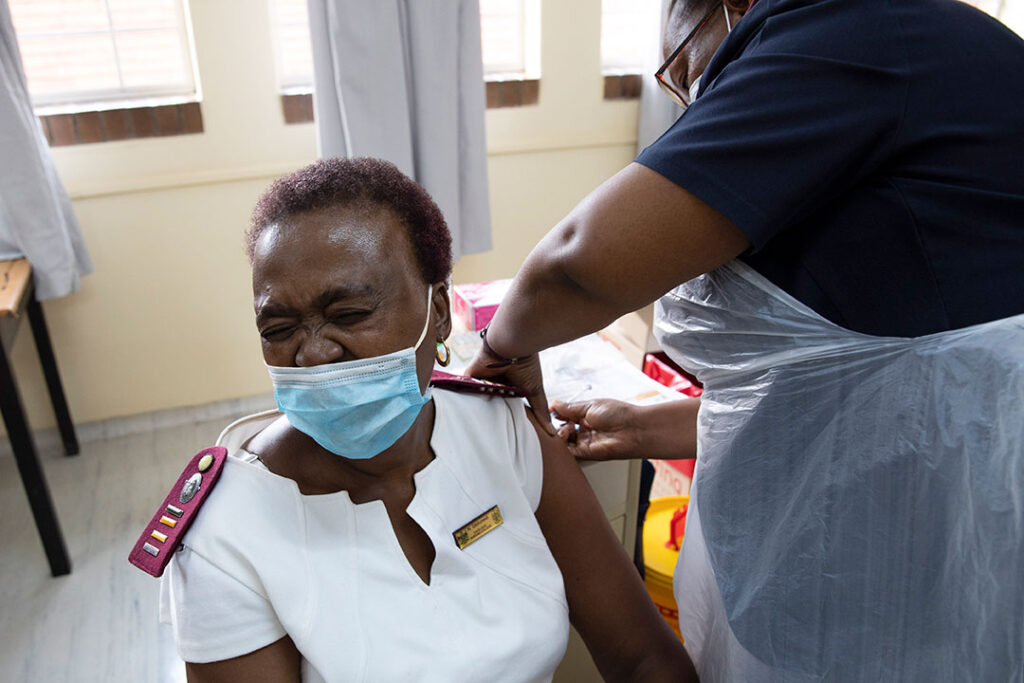ADF STAFF
Even as they secure millions of doses of COVID-19 vaccine for their citizens, South African leaders are bracing for a third wave of infections when winter arrives in June.
Health authorities began their push to fend off a third wave in March as they urged people to follow protective protocols such as wearing masks, hand-washing and social distancing during Easter celebrations.
At the time, Health Minister Zweli Mkhize told members of Parliament the risk of a third or even a fourth wave cannot be ruled out.
“No one can say, until the majority of people are vaccinated, that we are safe from any resurgence,” he said.
South Africa plans to vaccinate 14 million people by the end of the year, according to Mkhize.
The country has been building a vaccine supply big enough to cover its entire population. It has recently signed agreements for more than 51 million vaccine doses in addition to receiving doses from the international COVAX facility and potentially more from the African Union’s African Vaccine Acquisition Task Team.
But vaccine distribution may not move quickly enough to head off another spike in cases this year.
“The problem really is that there are still a lot of people that are susceptible to a third surge,” Professor Alex van den Heever of the University of Witwatersrand told SABC News in mid-March. “So we could face quite a lot of people who are infected in a third surge.”
The good news, he added, is that people who already have contracted COVID-19 have a low risk of being reinfected during a third wave.
That could bode well for the Western Cape region, which was hit hard by earlier waves. Blood tests show that nearly half of Cape Town’s population has been exposed to COVID-19.
“That could be something working in the favor of a less deadly third surge,” van den Heever said.
As of mid-April, South Africa had reported more than 1.5 million infections and more than 53,000 deaths. However, studies of excess mortality over the past year suggest that the actual COVID-19 death toll is closer to 150,000.
The timing for a potential third wave remains uncertain, but health experts note that infection waves tend to run about three months apart. That would put South Africa’s next wave around June. The changing behaviors associated with winter make a third wave more likely, according to Professor Abdool Karim, former chairman of the Ministerial Advisory Committee on COVID-19.
At his weekly COVID-19 updates Dr. John Nkengasong, director of the Africa Centres of Disease Control and Prevention, has urged Africans to continue taking COVID-19 precautions and to take vaccines as they become available. Any vaccine is better than no vaccine, he said.
Meanwhile, health experts are urging South Africa to increase its testing and vaccination programs to avoid the third wave they fear is on the horizon.
“Vaccinations to date have been part of expanded trial, not a proper roll out,” van den Heever said. “It will be August or September until we can vaccinate at scale, which means one more wave.”

